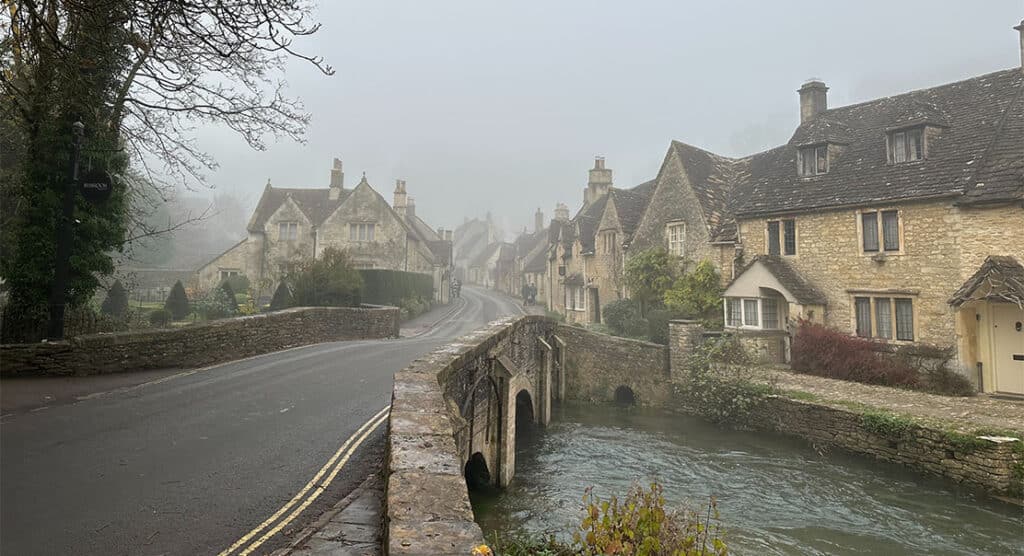Six Challenges of Ministry in Small Places

I recently spoke with a pastor from Rural Wales. Their church had the joy of seeing a man saved through Christianity Explored. It was a great encouragement for this church. But a year later, this man moved on due to work. The church felt like they were back to square one.
Do you sympathise with their experience? No doubt many churches will. Sixteen per cent of the population of England live in villages with populations under 10,000 (and even more in Wales, Scotland and Northern Ireland). Whether you use the word ‘rural’, ‘small places’ or ‘villages’ this is clearly an important mission field. But these locations face particular challenges.
I pastor a church in a village of 1,300 but I’m also part of a group called The Rural Project which hopes to provide support to such churches. During my time working with this group, I’ve noticed a number of common challenges are raised. These aren’t true of all churches (not all are true of mine). But they are common and worth considering solutions to.
1. You must wait to see growth
No church I know finds growth easy. Nevertheless, certain factors do make growth slower in rural areas. For example:
- A village of 1,000 inevitably has an upper limit on size
- There is less population turnover, meaning fewer new people will join the area
- The population is generally older
How do we cope with this? Firstly, we need to realise God isn’t limited by population dynamics. Look at the history of revivals and you will see they often occur in the middle of nowhere rather than in city centres.
Secondly, we need to remind ourselves of God’s perspective of evangelism. Jesus’ parable of the Sower reminds us that we cannot change the soil, we can only fling the seed. We cannot force growth, God is in control. It is right to have a holy dissatisfaction with a lack of growth. Let that lead you to prayer, not despondency.
2. You see young people leave
Cities tend to attract younger people:
- They are educated in universities
- They go to urban businesses for jobs
- They attend urban churches to be around other young Christians
This can be discouraging to pastors in smaller places. One rural pastor told me ‘University churches frequently encourage the students we sent to stay in the city to support the church. I wish more encouraged people to go and bless smaller churches elsewhere.’
How should we respond? Remember the grass isn’t always greener! I know pastors in urban churches who wish they could have some mature Christians to provide leadership and stability.
Also, remember God knows the big picture. If reaching the UK for Christ is the war, there are many individual battles. God as the good general knows where to move his troops. He may know that a twenty-year-old is more needed in a city than in a village. Also, with the gaps that remain, well remember God knows that too. Trust his sovereign purposes even when it feels discouraging.
3. You’re isolated from like-minded churches
In some areas, there is a Bible belt of evangelical churches clustered together. Yet many churches in smaller communities are isolated from brothers and sisters. Pastors can feel alone. Church members lack the benefits of working together with like-minded believers for training or mission. One pastor told me, ‘It seemed like all the exciting stuff was happening in the cities, and I was always on the outside.’
For independent churches, isolation is always a danger. Part of the solution is realising this is a problem. Then work to make time for fellowship. For pastors, local fraternal groups are a blessing. As the Rural Project, we’ve started an online Zoom group to connect rural Christians who can’t connect physically.
In regard to church members, pastors should promote opportunities that may lead to fellowship. Perhaps that’s as simple as swapping pulpits with a friend one Sunday to broaden horizons or going as a group to a conference elsewhere in the country. We weren’t made to go solo. The effort may be greater for some churches but it is worth it.
4. You’re compared to bigger churches
Perhaps more than ever, we are aware of the ministry of big churches. Smaller churches will find themselves unfavourably compared to bigger churches:
- The bi-vocational preacher is compared to Alistair Begg
- The grade 4 backup pianist is compared to City Alight
- The ageing Sunday school leader is compared to the top-notch summer camp leaders
Escaping this begins with the pastor examining his own heart. I recently heard a man refer to himself as a ‘two-talent’ pastor. He was referring to the parable of the talents and recognised that he was never going to be a five-talent well-known preacher. He could acknowledge his limitations and use the talents he had well.
Once a leader deals with that in himself, he can help to change the culture at the church. He can have the confidence to protect his flock from overcommitting to ministries that burn people out or celebrating smaller wins. Often pastors are just as bad with overhigh expectations of their members! More realism will lead to more thankfulness for what God is doing.
5. Your congregation is geographically spread
When I lived in Cardiff, I was within walking distance of many solid evangelical churches. Yet, as most of us have experienced on summer holidays, in some parts of the country you could be miles from the nearest evangelical church. This can present numerous problems:
- Limited Fellowship: The distance can stall fellowship. For example, taking a seven-year-old on a sixty-minute round trip to church kids groups, might not be possible.
- Unfocused Evangelism: Christians are willing to travel long distances for good Bible teaching, but it can be hard to reach unbelievers in such a broad area. At the same time, outreach to the village the church is situated in can be hard because fewer people live there.
- Secondary disagreement: Church members are likely to settle in churches that are evangelical but may have to compromise on secondary issues like baptism, election or spiritual gifts. This can lead to tensions.
We faced this problem when we planted a church in a nearby town. Our focus shifted to two places: Sandbach and Wheelock Heath. But many of our members asked, ‘What about those of us who don’t live in either?’ Looking at the New Testament, such scattering was rarely seen as negative but as an opportunity. Whether through individual witness, small groups or eventual church plants, a geographical spread is an opportunity for gospel advance.
6. You struggle to appoint leaders
Appointing leaders at all levels will be a challenge. You can feel like you are constantly filling holes in rotas. Raising senior leaders (such as elders) can be a challenge with access to training being geographically difficult. Add to this when appointing full-time pastors, a distance from training centres can make it difficult to attract good candidates.
There are some solutions. The internet gives great opportunities for online training. Perhaps smaller churches may benefit from bringing leaders together occasionally for this purpose. It may also be worth considering whether the church is overcommitting to ministries the membership can’t contain. Yet nothing can get us away from prayer: ‘The harvest is plentiful but the workers are few. Ask the Lord of the harvest, therefore, to send out workers into his harvest field.’ (Matthew 9:37-38, NIV).
Perhaps the lack of leadership is a call for us as churches to be more dependent in prayer. I’ve known of churches who have prayed for leaders only to have them walk through the door. There’s no guarantee but when our saviour calls us to pray we should do it.
Conclusion
There are many challenges in all types of churches. Small churches have their unique challenges which are rarely discussed. I hope this article has begun to give you hope of an answer. But the greatest hope is the hope given to the church in Philadelphia: ‘I know your deeds. See, I have placed before you an open door that no one can shut. I know that you have little strength, yet you have kept my word and have not denied my name.’ (Revelation 3:8, NIV)
You may feel you have little strength. But the Lord of heaven and earth knows your deeds. Keep his word. Never deny his name. And await the day when he says to you ‘Well done good and faithful servant.’

Related articles
Stay connected with our monthly update
Sign up to receive the latest news from Affinity and our members, delivered straight to your inbox once a month.



